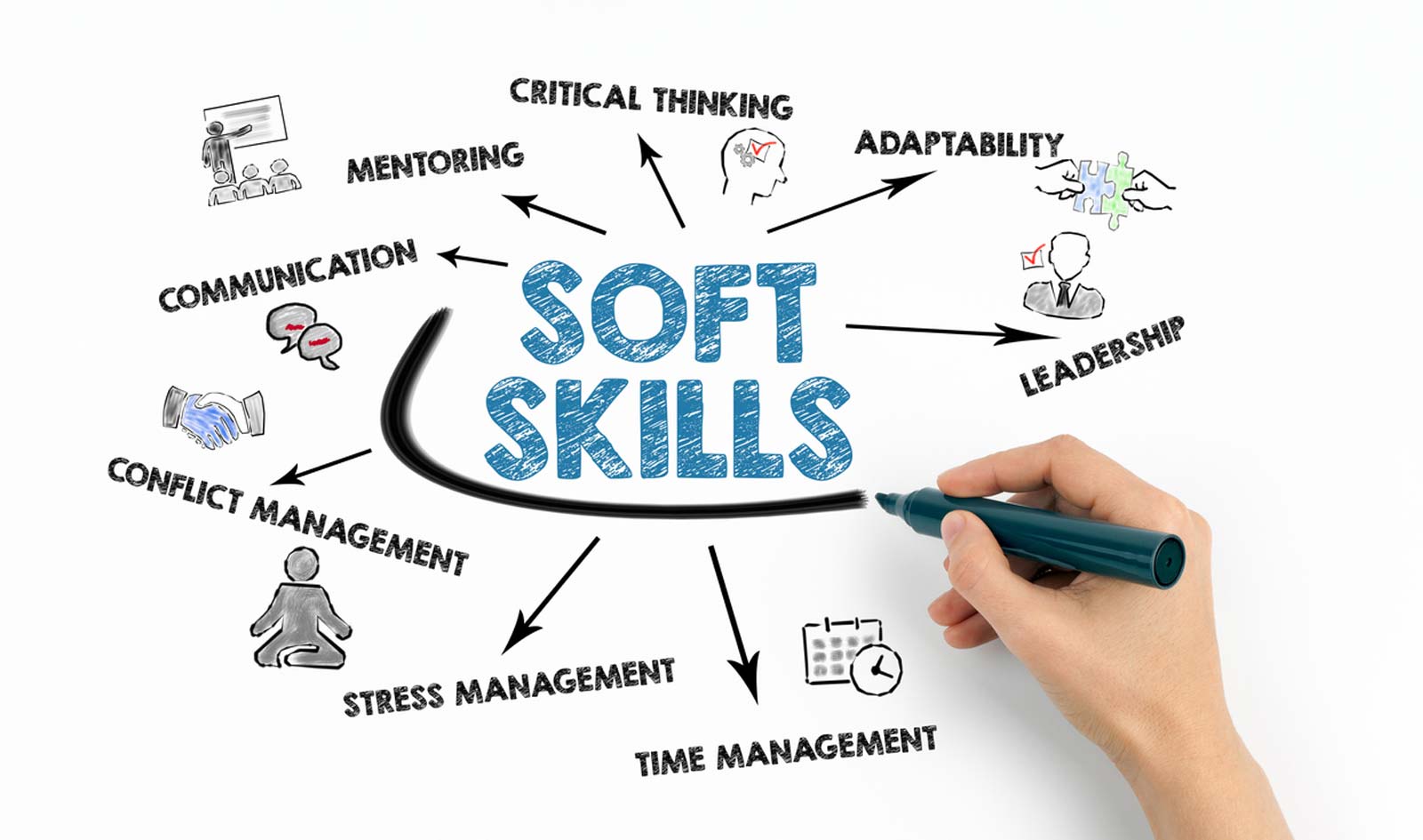The hiring landscape has changed. Employers are no longer focused only on degrees, certifications, and technical knowledge. While hard skills remain crucial, soft skills—often called people skills or human skills—are now taking center stage.
In fact, according to LinkedIn’s Global Talent Trends Report, 92% of hiring managers believe soft skills are equally or more important than hard skills. The reason is simple: in an interconnected, fast-paced world, technical expertise without strong interpersonal abilities isn’t enough to succeed.
What Exactly Are Soft Skills?
Soft skills are the intangible qualities that determine how a person works, rather than what they know. They’re harder to measure than technical abilities but are just as vital. Some of the most in-demand soft skills today include:
- Communication – conveying ideas clearly, listening actively, and adapting tone for different audiences.
- Teamwork & Collaboration – thriving in group environments, respecting diverse perspectives, and building trust.
- Adaptability – adjusting to new technologies, changing priorities, and evolving business environments.
- Problem-Solving & Critical Thinking – analyzing challenges, thinking creatively, and making sound decisions under pressure.
- Emotional Intelligence (EQ) – understanding and managing one’s own emotions while empathizing with others.
- Time Management & Organization – balancing multiple responsibilities without compromising quality.
- Leadership & Influence – inspiring and guiding teams, even without formal authority.
Why Soft Skills Matter for Employers
- Stronger Collaboration and Productivity
A workplace is only as strong as its teams. Employees with strong communication and collaboration skills reduce misunderstandings, resolve conflicts quickly, and get projects done efficiently.
- Adaptability in Uncertain Times
Technology, customer demands, and market conditions shift constantly. Employees who can pivot, learn new tools, and embrace change are more valuable than those who only stick to one skill set.
- Future Leaders Emerge from Soft Skills
Employers looking for managers and executives know that leadership is built on empathy, communication, and decision-making. These are all soft skills that can’t be replaced by technical expertise alone.
- Customer and Client Relationships
In industries like recruitment, sales, and consulting, employees are often the “face” of the brand. Strong interpersonal skills ensure better customer satisfaction and long-term loyalty.
How Candidates Can Showcase Soft Skills
Candidates often underestimate how to present their soft skills. Here are effective strategies:
- Resumes and Cover Letters: Instead of simply listing “good communicator,” show it through achievements. For example: “Presented project findings to executives, resulting in a successful $200k budget approval.”
- In Interviews: Use the STAR method (Situation, Task, Action, Result) to demonstrate soft skills with real examples.
- Portfolio or Social Media Presence: Share thought leadership posts, collaborative projects, or group work highlights that reflect your communication and teamwork.
- Non-Work Examples: Volunteer work, sports teams, or community leadership roles can also show adaptability and collaboration.
How Employers Can Assess Soft Skills
Soft skills are trickier to evaluate than technical ones, but employers can use these methods:
- Behavioral Interviews: Ask candidates to share past experiences such as, “Tell me about a time you resolved a conflict at work.”
- Situational Role-Plays: Present scenarios where teamwork, negotiation, or adaptability is tested.
- Group Assessments: Observe candidates in collaborative exercises to see how they interact under pressure.
- Reference Checks: Ask past employers specifically about communication, leadership, and conflict resolution.
- Psychometric & Personality Tests: Tools like DISC or MBTI can give insights into communication styles and adaptability.
Final Thoughts
The future of hiring is shifting toward a human-first approach. Technical expertise may get candidates an interview, but soft skills often secure the job and ensure long-term success.
- For candidates: Highlight your communication, adaptability, and teamwork as strongly as your technical skills.
- For employers: Prioritize soft skills in your hiring strategy to build resilient, innovative, and future-ready teams.
At Red Signal, we believe that behind every successful business is a team of individuals whose soft skills empower them to collaborate, lead, and grow. By recognizing and nurturing these abilities, employers and candidates alike can thrive in the modern workplace.

